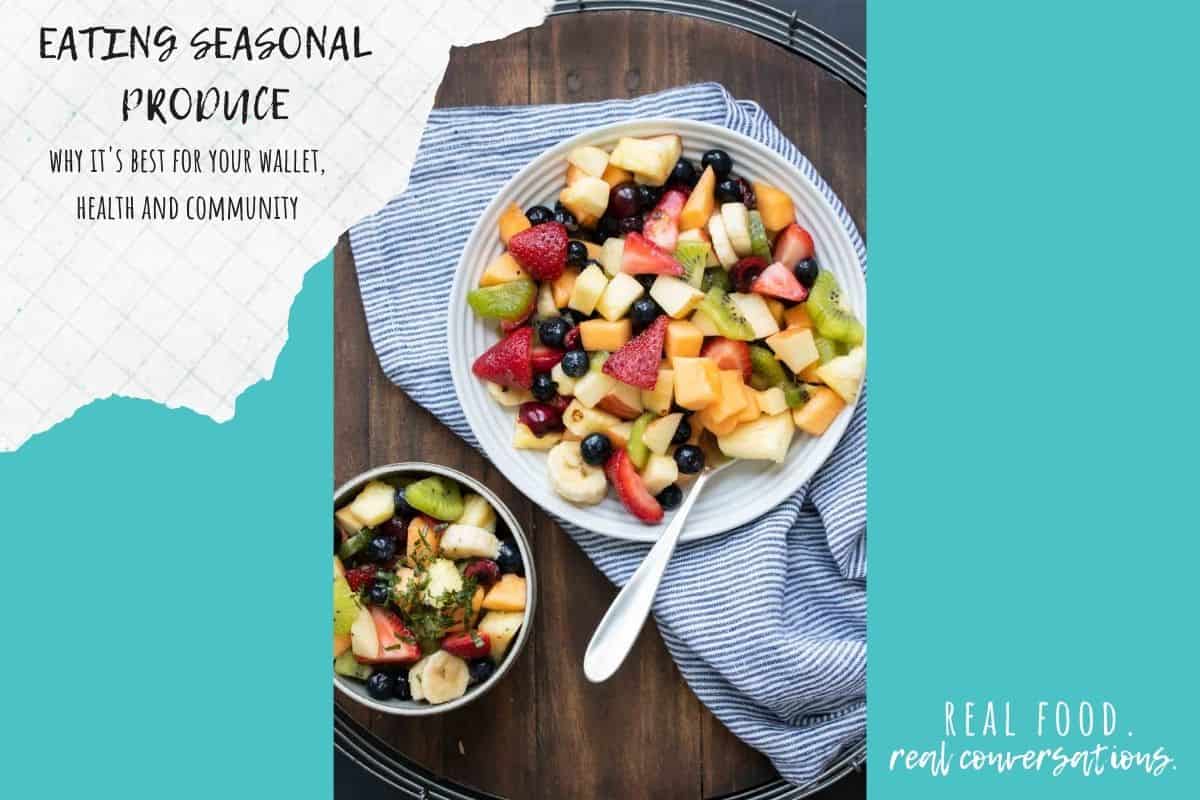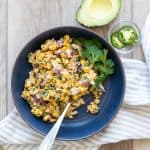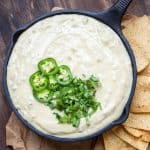Eating seasonal produce versus buying things that are not in season can have many benefits. Listen in to learn more about what they are!

Depending on where you live and shop, you may not even realize what produce is in season when. This episode can help you learn the what, how and why of it all!
Podcast: Play in new window | Download | Embed Subscribe now! Apple Podcasts | iHeartRadio | TuneIn | Deezer | RSS | More
Benefits of Eating Seasonal Produce
Eating seasonal produce has many benefits. It can help the environment, our own health and wellness, and benefit the community as a whole.
Here are some key benefits of eating seasonally:
- Reducing your carbon footprint
- You get more nutrient dense foods
- The produce tastes better
- The cost is lower
- Keeping your diet more diverse
- Helping the community
Produce and Carbon Footprint
Back before we had all the technology and access we have today, farmers grew what they were able to for the current season. If it was apple time, they grew apples. If it was peach season, that's what you got.
But as time went on, developments in technology allowed produce to be grown year round. While this can definitely have its benefits for parts of the world where the weather doesn't allow for farming during the freezing cold months, it has also had it's detriment.
Food travels much farther now, not only within the United States but also imported and exported around the world. This leaves a large carbon footprint which greatly affects out environment.
Along with food traveling further than ever before, we have developed other ways to grow food, like inside greenhouses. These alternative growing methods can use more energy than growing the produce traditionally in the outdoors.
Is Seasonal Produce More Nutritious?
Produce that is in season has more nutrients. As produce grows, factors like the soil it is grown in, the amount of sun it gets and other climate related issues all contribute to how nutrient dense the produce is.
For example, the soil of winter seasons give us produce that is rich in vitamin C. So if we grow these things in other seasons, we will not get as much as you would in winter.
Also, in order for the produce to absorb the maximum amount of the nutrients in the soil, it needs to be allowed to reach it's peak ripeness. Out of season produce is picked early so it is not able to get everything from the soil.
Flavor of Produce in Season
Seasonal produce also tastes much better. Since it doesn't have to travel as far, you get a more flavorful result. The longer it is on the shelf, the less the flavor. Flavor can also be reduced when using things to control ripening and freshness on out of season produce.
Cost of Seasonal Produce
It can save you money. When food doesn't have to travel far, or use more expensive methods to grow, the cost can be reduced and sold for less.
Next time you are at the grocery store, take note of the price of fruits and vegetables that are in season and track to see the cost rise as they become out of season.
When the produce is more available, meaning it is the season that they grow in, the costs are much lower.
Eating a Diverse Diet
When you focus on the foods that are in season, you are able to eat a wider range of fruits and vegetables. The reason why you hear a lot about eating the rainbow is because every fruit and vegetable offers us different nutrients.
We get the most nutrients when we eat a variety of foods, and some experts even say eating 30 different foods each week is best. So focusing on seasonal eating allows us to do that with ease!
Helping Local Farmers
When we buy foods that are in season, we are helping the farmers in our community. Visiting farmers markets, participating in local CSA boxes and shopping at stores who sell local produce all helps your local economy.
If we each try and support local, we are helping those that live in our community and as a whole it brings an aura of support to those around us.
What is in Season?
So what is in season when? This can change depending on where you live. I live in a warm climate that lends itself to growing many things year round. But not everywhere is that lucky.
A few fruits and vegetables that grow in each season are:
- Fall- apples, pears, pumpkins, squashes
- Winter- oranges, grapefruit, winter squash, brussels sprouts
- Spring- asparagus, corn, spinach, chard, peaches
- Summer- peppers, blueberries, cherries, strawberries
For a full list of all the types of produce you can find in each season make sure to download my seasonal produce guide! And remember that it will change depending on where you live.

PS- If you liked this episode of Real Food Real Conversations, please subscribe and leave me a review!
And tag me on Instagram whenever you're listening! I reply to all my messages!














Andrea
OK, so my question is:
how do i learn to like produce? and what does one store in a tiny refrigerator???
Sophia DeSantis
Hi Andrea! I think the key to liking fruit and veggies is how you make them. I personally like roasted veggies best, with seasoning and salt. Roasting helps caramelize them and gives them a great flavor. You can also find recipes where you enjoy the flavors and start adding to those. Start with milder tasting produce like apples, for fruit and carrots or spinach for veggies. As for storage, you can only store what you have room for so I suggest buy a few things at a time. You can prep them by cutting and chopping to save space too! Let me know if you have any other questions!